Cell Reproduction -> chemical reaction
Chemical Reactions
A chemical reaction is a process that involves the rearrangement of the molecular or ionic structure of a substance, resulting in the formation of one or more new substances. During a chemical reaction, the bonds between atoms are broken and reformed, leading to the creation of different molecules.
Types of Chemical Reactions
Chemical reactions can be classified into several types:
- Synthesis Reactions: Two or more substances combine to form a new compound. The general form is A + B → AB.
- Decomposition Reactions: A compound breaks down into two or more simpler substances. The general form is AB → A + B.
- Single Replacement Reactions: One element replaces another in a compound. The general form is A + BC → AC + B.
- Double Replacement Reactions: The positive and negative ions of two ionic compounds exchange places. The general form is AB + CD → AD + CB.
- Combustion Reactions: A substance reacts with oxygen, releasing energy in the form of heat and light. The general form is fuel + O2 → CO2 + H2O.
Factors Affecting Chemical Reactions
Several factors can influence the rate and outcome of chemical reactions:
- Temperature: Generally, an increase in temperature leads to a faster reaction rate, as higher temperatures provide more kinetic energy for the molecules to collide and react.
- Concentration: Higher concentrations of reactants typically lead to faster reaction rates, as there are more reactant molecules available to collide and form products.
- Surface Area: In reactions involving solids, a larger surface area of the solid can lead to a faster reaction, as there is more area for the reactant molecules to come into contact with the solid.
- Catalysts: Catalysts are substances that can increase the rate of a chemical reaction without being consumed in the process. They work by providing an alternative reaction pathway with lower activation energy.
- Pressure: For reactions involving gases, an increase in pressure can lead to a faster reaction rate, as the higher pressure results in more frequent collisions between gas molecules.
Study Guide for Chemical Reactions
When studying chemical reactions, it's important to grasp the following concepts:
- Identify the reactants and products in a chemical reaction.
- Understand the difference between exothermic and endothermic reactions.
- Learn how to balance chemical equations to satisfy the law of conservation of mass.
- Recognize the different types of chemical reactions and their general forms.
- Be familiar with the factors that can affect the rate of a chemical reaction.
- Practice predicting the products of chemical reactions based on the reactivity of elements and the types of compounds involved.
Understanding chemical reactions is vital to comprehending the world around us, as these reactions are fundamental to many natural and synthetic processes.
[Chemical Reaction] Related Worksheets and Study Guides:
.◂Science Worksheets and Study Guides Seventh Grade. Cell Reproduction
Study Guide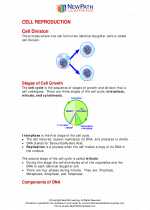 Cell Reproduction
Cell Reproduction  Activity Lesson
Activity Lesson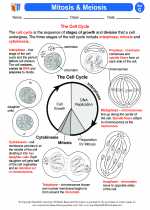 Mitosis & Meiosis
Mitosis & Meiosis  Worksheet/Answer key
Worksheet/Answer key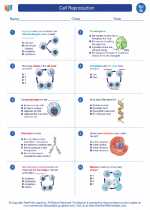 Cell Reproduction
Cell Reproduction  Worksheet/Answer key
Worksheet/Answer key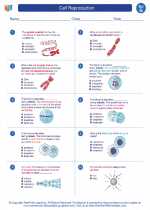 Cell Reproduction
Cell Reproduction  Worksheet/Answer key
Worksheet/Answer key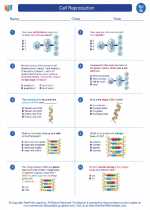 Cell Reproduction
Cell Reproduction  Vocabulary/Answer key
Vocabulary/Answer key Cell Reproduction
Cell Reproduction  Vocabulary/Answer key
Vocabulary/Answer key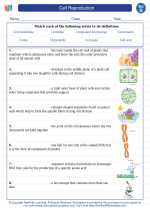 Cell Reproduction
Cell Reproduction  Vocabulary/Answer key
Vocabulary/Answer key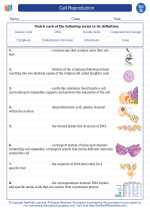 Cell Reproduction
Cell Reproduction  Vocabulary/Answer key
Vocabulary/Answer key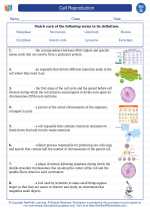 Cell Reproduction
Cell Reproduction  Vocabulary/Answer key
Vocabulary/Answer key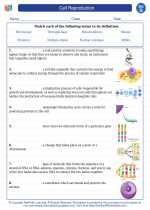 Cell Reproduction
Cell Reproduction  Vocabulary/Answer key
Vocabulary/Answer key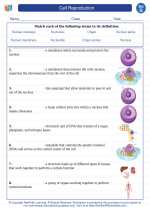 Cell Reproduction
Cell Reproduction  Vocabulary/Answer key
Vocabulary/Answer key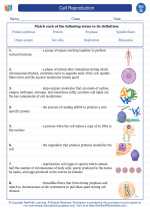 Cell Reproduction
Cell Reproduction  Vocabulary/Answer key
Vocabulary/Answer key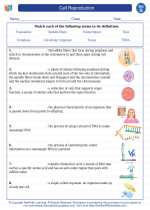 Cell Reproduction
Cell Reproduction 

 Activity Lesson
Activity Lesson
 Worksheet/Answer key
Worksheet/Answer key
 Worksheet/Answer key
Worksheet/Answer key
 Worksheet/Answer key
Worksheet/Answer key
 Vocabulary/Answer key
Vocabulary/Answer key
 Vocabulary/Answer key
Vocabulary/Answer key
 Vocabulary/Answer key
Vocabulary/Answer key
 Vocabulary/Answer key
Vocabulary/Answer key
 Vocabulary/Answer key
Vocabulary/Answer key
 Vocabulary/Answer key
Vocabulary/Answer key
 Vocabulary/Answer key
Vocabulary/Answer key
 Vocabulary/Answer key
Vocabulary/Answer key

The resources above cover the following skills:
LIFE SCIENCE
From Molecules to Organisms: Structures and Processes
Gather and synthesize information to explain how prokaryotic and eukaryotic cells differ in structure and function, including the methods of asexual and sexual reproduction.